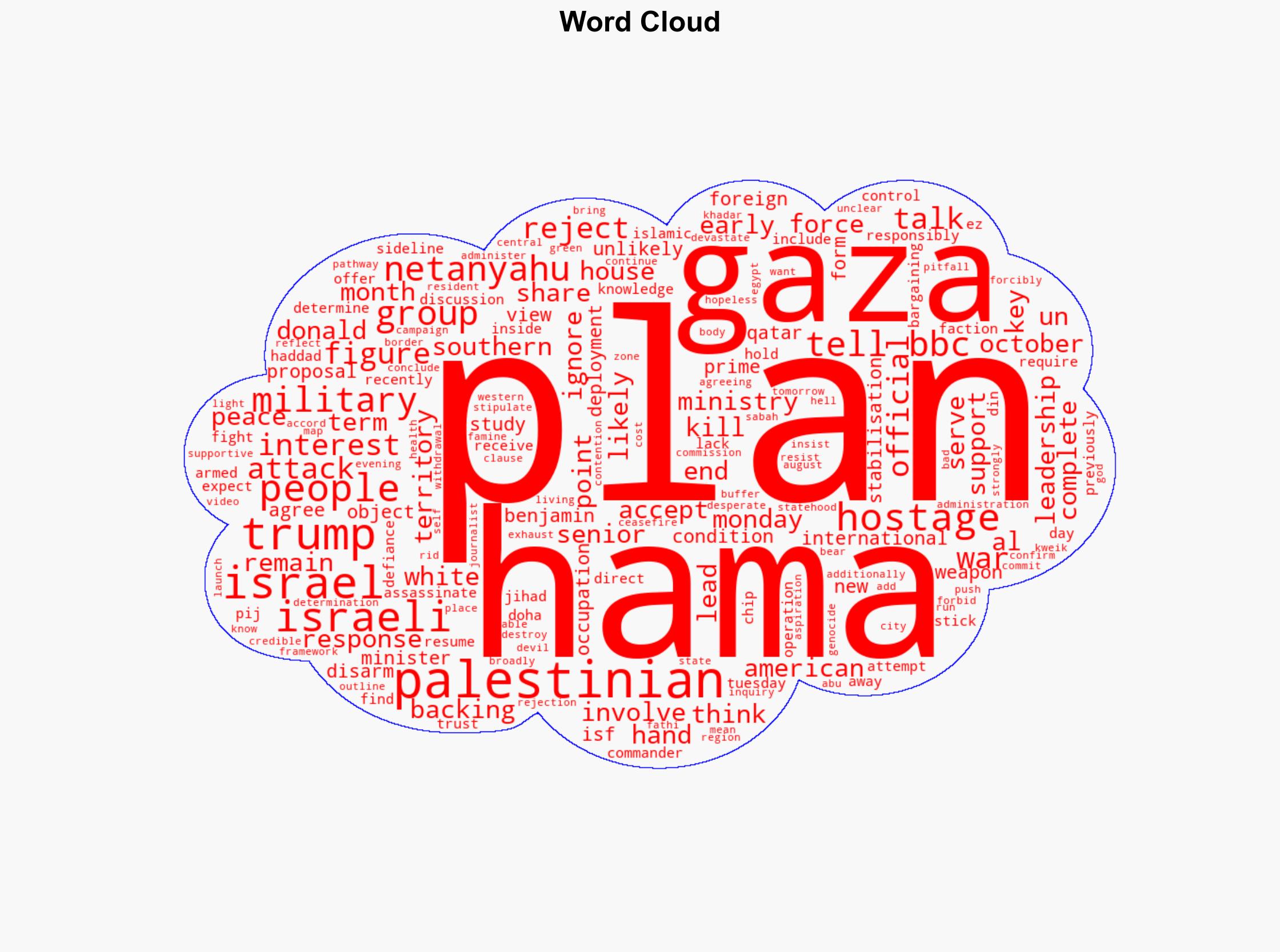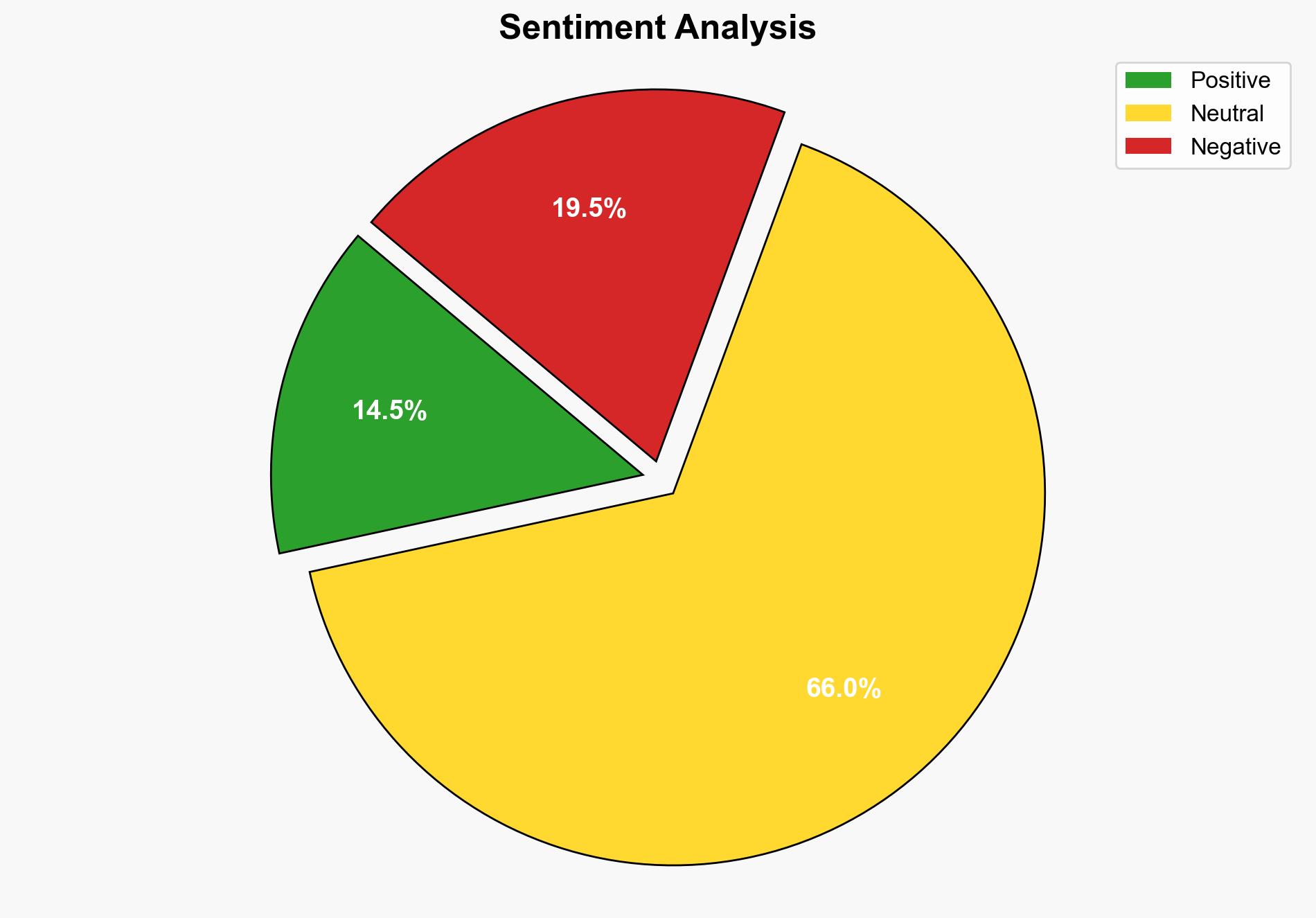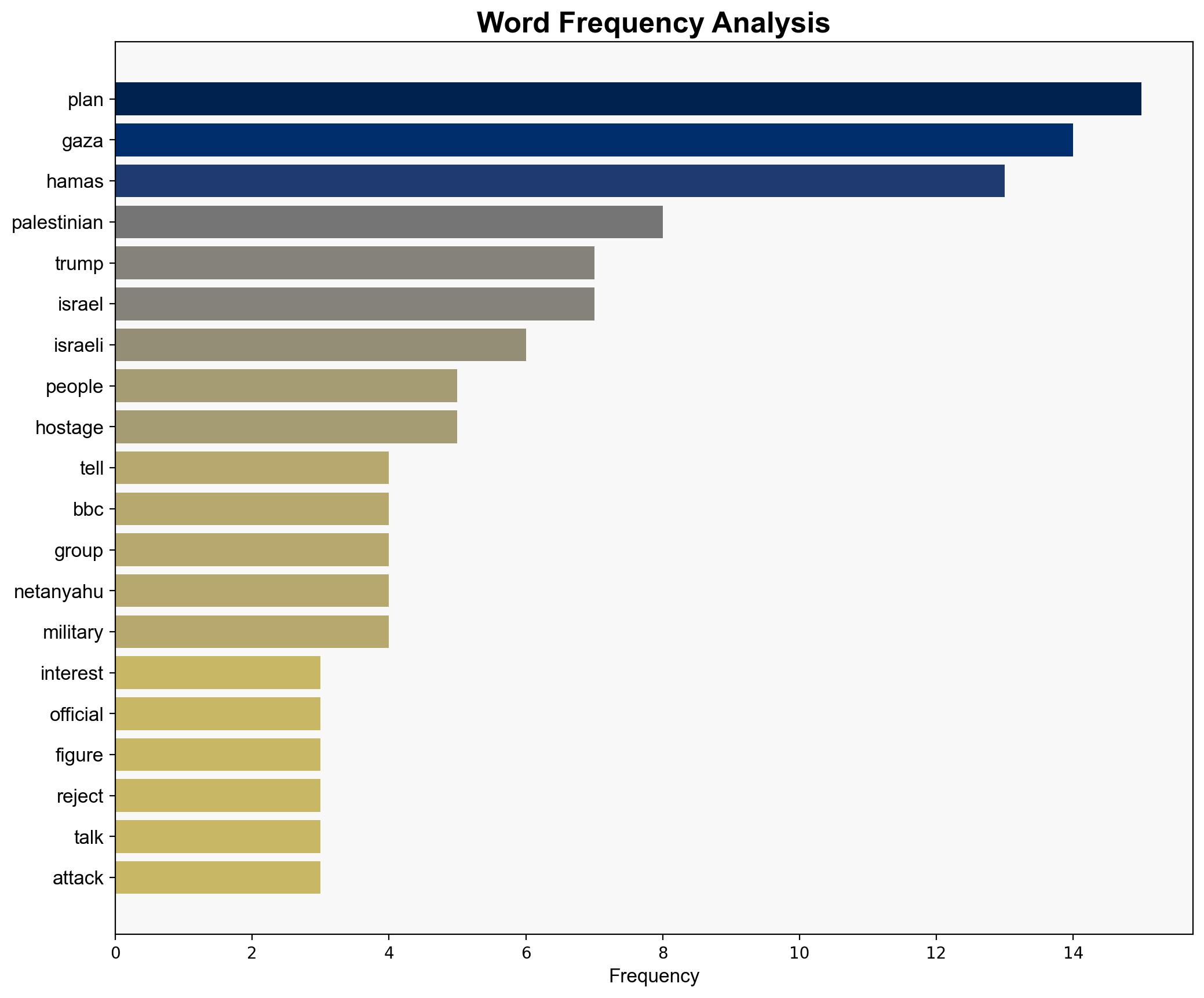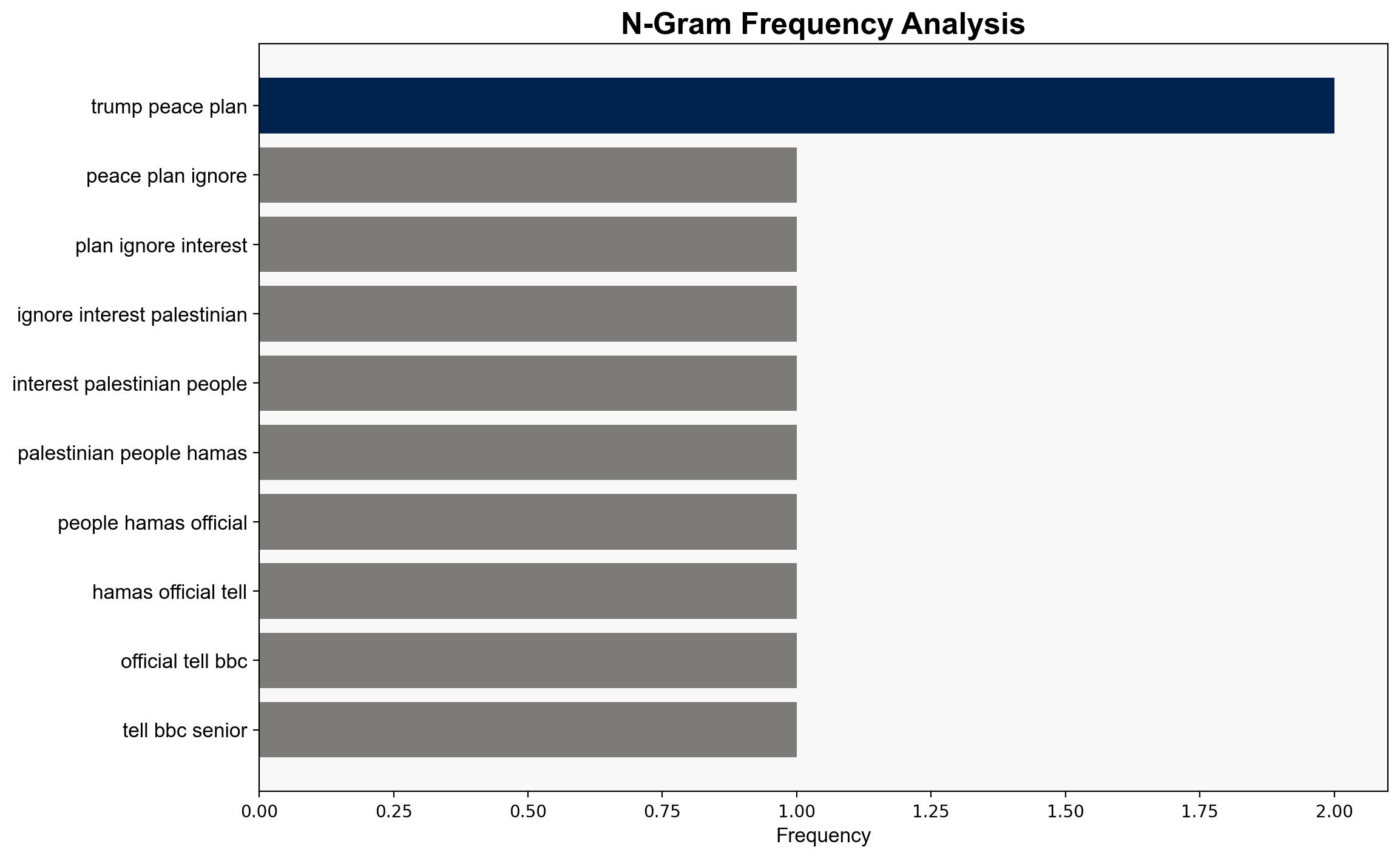Trump peace plan ‘ignores interests of Palestinian people’ Hamas official tells BBC – BBC News
Published on: 2025-09-30
Intelligence Report: Trump peace plan ‘ignores interests of Palestinian people’ Hamas official tells BBC – BBC News
1. BLUF (Bottom Line Up Front)
The most supported hypothesis is that the Trump peace plan is perceived by Hamas as favoring Israeli interests, leading to its likely rejection by Palestinian factions. Confidence in this assessment is high due to consistent statements from Hamas officials and historical context. Recommended action includes diplomatic engagement with Palestinian representatives to address concerns and prevent escalation.
2. Competing Hypotheses
1. **Hypothesis A**: The Trump peace plan is designed to favor Israeli interests, leading to its rejection by Hamas and other Palestinian factions. This is supported by Hamas’ statements and the plan’s conditions, such as disarmament and international stabilization forces, which are seen as threats to Palestinian autonomy.
2. **Hypothesis B**: The Trump peace plan aims to create a balanced resolution but is misinterpreted by Hamas due to distrust and historical grievances. This hypothesis considers the possibility that the plan includes provisions for Palestinian self-determination that are overshadowed by immediate security concerns.
Using ACH 2.0, Hypothesis A is better supported due to the explicit rejection by Hamas and the alignment of the plan with Israeli strategic interests as perceived by Palestinian factions.
3. Key Assumptions and Red Flags
– **Assumptions**: Hypothesis A assumes that Hamas’ rejection is based solely on the plan’s content rather than strategic posturing. Hypothesis B assumes that the plan’s intentions are genuinely balanced.
– **Red Flags**: The lack of detailed information on how the plan addresses Palestinian statehood and self-determination raises concerns. The potential bias in media reporting and political statements could skew perceptions.
– **Blind Spots**: The internal dynamics within Hamas and other Palestinian factions, which may influence decision-making, are not fully explored.
4. Implications and Strategic Risks
– **Escalation Risks**: Rejection of the plan could lead to increased tensions and potential military confrontations, especially if perceived as a green light for Israeli actions.
– **Geopolitical Dimensions**: The plan’s rejection may strain U.S. relations with Arab allies and impact regional stability.
– **Psychological Impact**: The ongoing conflict and lack of resolution contribute to a sense of hopelessness among Palestinian populations, potentially fueling further unrest.
5. Recommendations and Outlook
- Engage in diplomatic dialogue with Palestinian leaders to address specific concerns and modify contentious aspects of the plan.
- Facilitate multilateral discussions involving regional stakeholders to ensure broader support and legitimacy.
- Scenario Projections:
- **Best Case**: Revised plan gains acceptance, leading to a ceasefire and renewed peace talks.
- **Worst Case**: Plan rejection leads to intensified conflict and regional instability.
- **Most Likely**: Continued stalemate with sporadic violence and diplomatic efforts to modify the plan.
6. Key Individuals and Entities
– Donald Trump
– Benjamin Netanyahu
– Hamas leadership
– Palestinian Islamic Jihad (PIJ)
– Fathi Sabah
– Khadar Abu Kweik
7. Thematic Tags
national security threats, regional focus, geopolitical stability, conflict resolution





